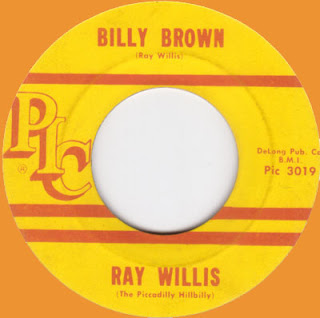18 killer tracks from the pen of the mobster who had a particular fondness for the music business
RockLector CLCD 010
tracklist :
Andy Rose - Classroom Cutie.mp3
Andy Rose - Dance On Pretty Clown.mp3
Andy Rose - I'm Waiting For You.mp3
Andy Rose - No Need To Go To Kansas City.mp3
Andy Rose - The Promise (Aka My Devotion).mp3
Barbie Gaye - Rock and roll baby .mp3
Chip Fisher - Sugar Bowl Rock.mp3
Dave Appel & The Applejacks - The Rock And Roll Story.mp3
Ronnie Mitchell - Darling You Don t Send Me No More.mp3
The Cleftones - I Was Dreaming.mp3
The Cleftones - You Baby You.mp3
The Valentines - Falling For You.mp3
The Valentines - I Love You Darling.mp3
The Valentines - Lily Maebelle.mp3
The Valentines - Sweetheart Of Mine.mp3
The Wrens - Hey Girl.mp3
The Wrens - Love's Something Thats Made For Two.mp3
The Wrens - What Makes You Do The Things That You Do.mp3
Tommy Vastola had a particular fondness for the music business, no doubt due to his long and deep friendship with Morris Levy, his childhood friend. Roulette Records Morris Levy's rapid rise was probably rooted in the early control of Alan Freed in New York through a circuitous route that included Tommy Vastola's appointment as Freed's manager in October 1955. In the fifties, Vastola managed various artists (The Cleftones among others). In 1957, he was promotion head of the newly formed Aamco Records who released hundreds of albums and not selling many, but that's was the idea, "losing money" for a tax evasion purpose.
In 1961, Vastola took over handling the career of Jackie Wilson previously managed by his friend Nat Tarnopol, who ran Brunswick Records in partnership with Decca records, and who turned over Wilson's affairs to the gangsters after he decided to devote himself full-time to running the label where Wilson also recorded. Before long, Vastola's influence over the label extended to him cutting deals with other artist managers to sign acts to Brunswick and helping himself to kickbacks from the advance
In 1961, Vastola also picked up a piece of Queen Booking, an artist agency started by Dinah Washington and run by her former maid, Ruth Bowen. The agency was one of the few black-owned operations in the business and booked dates for a wide variety of high-priced rhythm and blues talent.
In the eigthies, he operated Video Warehouse, a videocassette piracy operation in West Long Branch, New Jersey, which was one of his latest "business". Vastola have since retired.





















